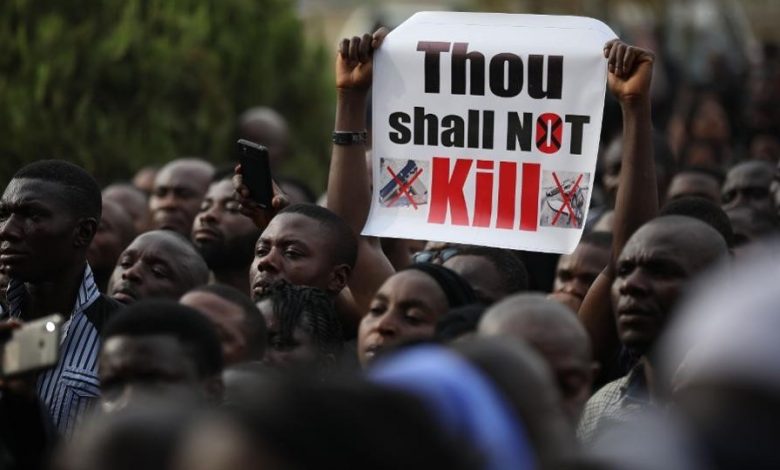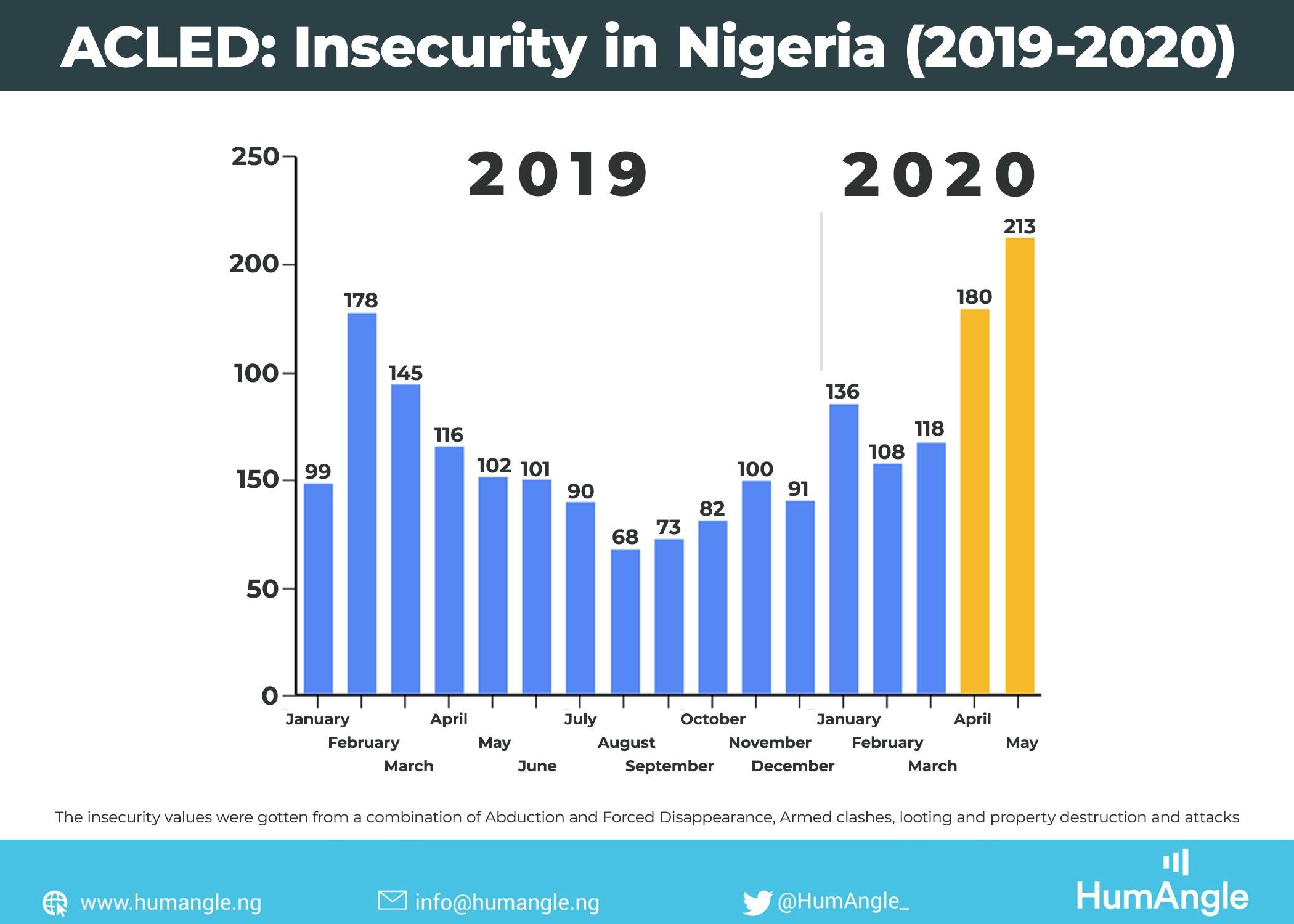Data: Crime Rates, Insecurity Worsened Significantly In Nigeria During Lockdown

Checks show that abductions, attacks, clashes among other forms of crime and violence have become greatly aggravated during the period of lockdown in Nigeria.
President Muhammadu Buhari announced on March 29, 2020, that from midnight of the next day there would be cessation in movements within, to, and from Lagos and Ogun states as well as the Federal Capital Territory, Abuja to check the spread of COVID-19. Various state governments likewise started imposing restrictions on movement and banned travellers from entering from other states.
In April, all 36 state governments through the Nigerian Governors’ Forum “unanimously agreed to the implementation of an interstate lockdown in the country” to reduce the spread of the novel coronavirus.
Figures made available based on media reports by the Armed Conflict Location and Event Data Project (ACLED), a prominent real-time data and analysis source on political violence and protest, show that a significant increase in insecurity occurred since the lockdown.
The ACLED database covers abductions and forced disappearances, airstrikes, armed clashes, arrests, attacks, explosions, looting and property destruction, mob violence, sexual violence, suicide bombing, violent demonstrations, and a host of other activities.
HumAngle viewed the data between January, 2019, and June 2020 and noticed a spike in violent crime beginning from April this year.
The total number of incidents in 2019, for instance, was 2,219, making the average 185 per month. Between January and March 2020, there were 268, 230, and 192 incidents respectively.
Unlike in 2019 when the incidents kept reducing till mid-year when they picked up a bit, there was a sharp increase from 192 incidents in March to 256 in April. In May, the number rose even further to 312, and as of June 6, there had been 68 incidents.
A similar trend can be seen in specific criminal activities such as abductions, armed clashes, and those classified as attacks.
In April and May, a higher number of 17 and 20 cases of abduction were respectively recorded. In contrast, there were 11, eight, and six incidents between January and March. Also in 2019, the average number of abduction per month was sixㅡagainst 18.5 during the period of lockdown. By June 6, five cases of abduction had already been recorded for the month.
Armed clashes also shot up in the month of April. In the first three months of the year, Nigeria had 51, 43, and 49 cases respectively recorded, but in April and May, the numbers increased to 70 and 77 respectively. By June 6, some 21 incidents had occurred.
In the case of attacks, the country had 69, 56, and 61 incidents between January and March. By April, it became 86 and May, 113, picture which shows an increase of the 2019 record.
Another database, the Nigeria Security Tracker, also shows that there has been an increase in fatalities from politically motivated crimes across the country. Between Monday, June 8, 2020, and Saturday, June 13, 2020, 261 people, including 184 civilians, lost their lives, a 31.7 per cent increase from the death toll of the previous week.
While delivering his Democracy Day address on Friday, June 12, President Buhari assured the country that his administration prioritised fighting insurgency, banditry, and other forms of crime.
Last Thursday, he rebuked the service chiefs and heads of security agencies for their poor handling of the security problems facing Nigeria.
“He is extremely unhappy about what is happening and he feels that, even though the security agencies are doing their best, their best is not good enough for him and wants an immediate reversal of the current trend and immediate reversal of our misfortunes in all their dimensions,” said National Security Adviser Babagana Monguno about the president’s feelings.
“He also stated that no one was forced on him, he selected everyone individually based on what he feels their records had revealed and therefore, it is up to individual organisations to live up to the expectations,” Monguno added while addressing reporters and other statehouses.
“Again, Mr President has also said that it is extremely important that we in the security agencies must ensure that we justify the leadership by not disappointing the populace.”
Support Our Journalism
There are millions of ordinary people affected by conflict in Africa whose stories are missing in the mainstream media. HumAngle is determined to tell those challenging and under-reported stories, hoping that the people impacted by these conflicts will find the safety and security they deserve.
To ensure that we continue to provide public service coverage, we have a small favour to ask you. We want you to be part of our journalistic endeavour by contributing a token to us.
Your donation will further promote a robust, free, and independent media.
Donate HereStay Closer To The Stories That Matter





